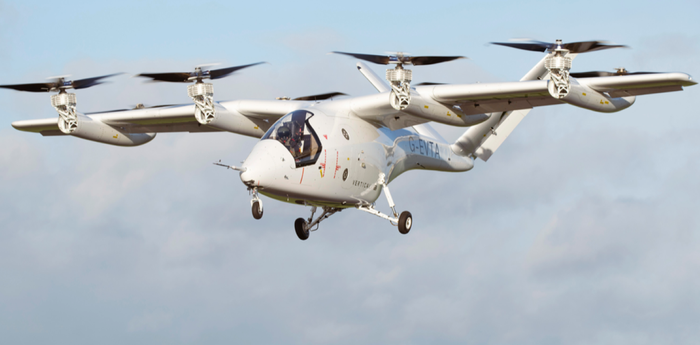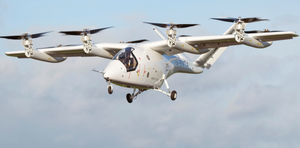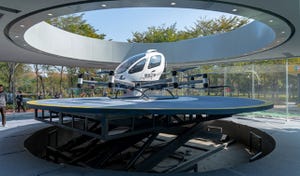Flying Vehicle Startup Gets Funding Following Piloted Test FlightFlying Vehicle Startup Gets Funding Following Piloted Test Flight
The funding is aimed at expanding the engineering team and developing a new powertrain and hybrid system

Electric aerial vehicle (EAV) startup Skyfly closed a new funding round following its first piloted test flight.
The undisclosed amount of financing is aimed at expanding the engineering team and developing a new powertrain and hybrid system.
The first Axe eVTOL (electric vertical takeoff and landing) vehicle is in the process of progressing through the flight test program.
The Axe is a two-seat eVTOL with eight electric motors.
“We are delighted to receive follow-on support from existing investors and welcome some fantastic new investors to the Skyfly team,” said Michael Thompson, CEO of Skyfly. “We will be announcing some new hires who are pioneers in electric aviation to complement an already incredibly capable team.”
The new funding is also intended to help Skyfly move to upgraded batteries, motors and speed controllers and develop the hybrid powertrain Skyfly identified as a major benefit to civilian and military customers.
Skyfly conducted its first crewed test flight late last year after receiving authority from the Civil Aviation Authority (CAA) in the U.K.
The EAV maker was given permission to test fly its Axe eVTOL vehicle following 200 tests conducted to tune the vehicle’s flight controller.
CEO Thompson was the first test pilot.
The CAA licensing department inspected the prototype and control systems as part of the approval process, according to Skyfly.
The flying vehicle contains a ballistic parachute system that can be activated by a lever in the cockpit to launch a rocket carrying the parachute out of the vehicle, capable of landing it with two passengers and luggage, according to the company.
Unlike some air taxis in development, the Axe does not have rotating engines or wings.
The axe is priced at $180,000, has a charge time of fewer than four hours and a range of 100 miles, according to the company.
For the vehicle to be flown in the U.S., Federal Aviation Administration (FAA) rules would require the vehicle to be flown by a licensed pilot.
Similar flying vehicles are under development, such as the Doroni H1 in Florida and the Air EV Air One in Israel.
Read more about:
Flying CarsAbout the Author
You May Also Like








